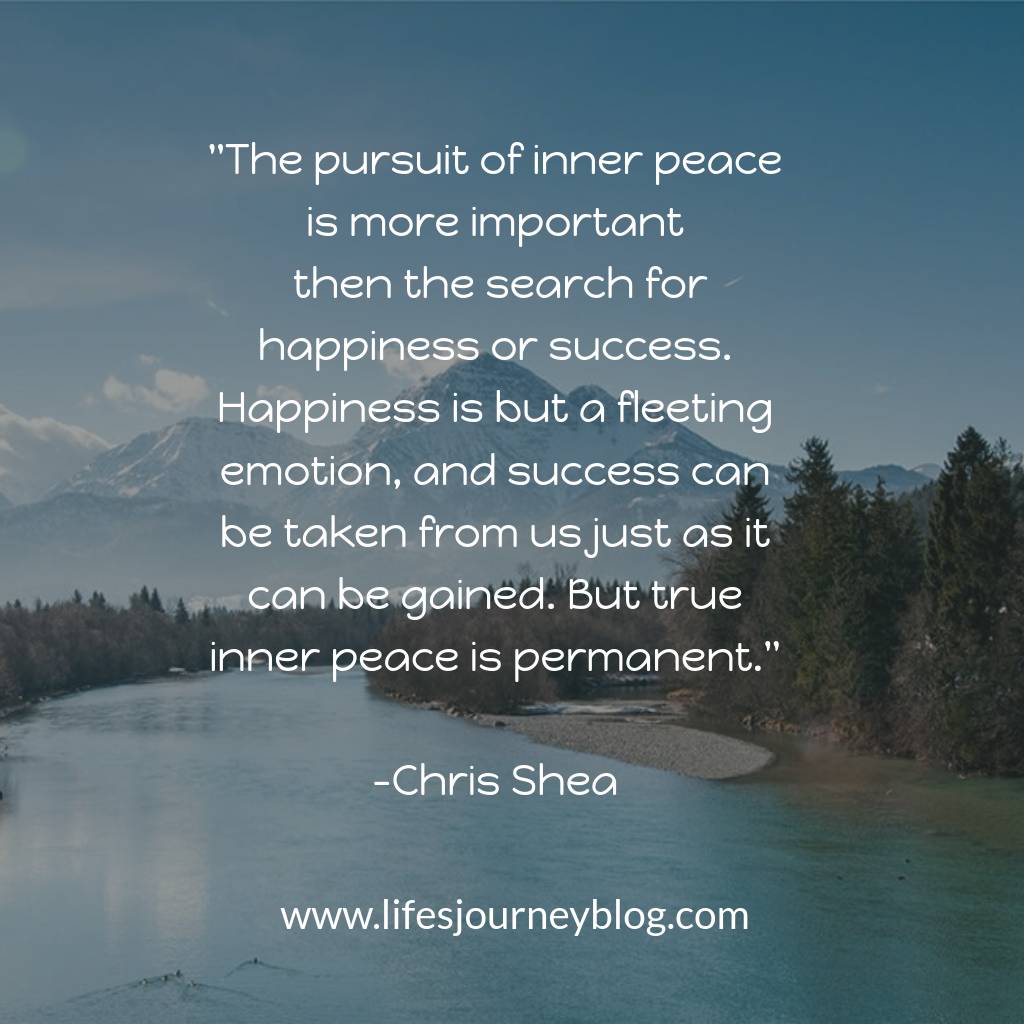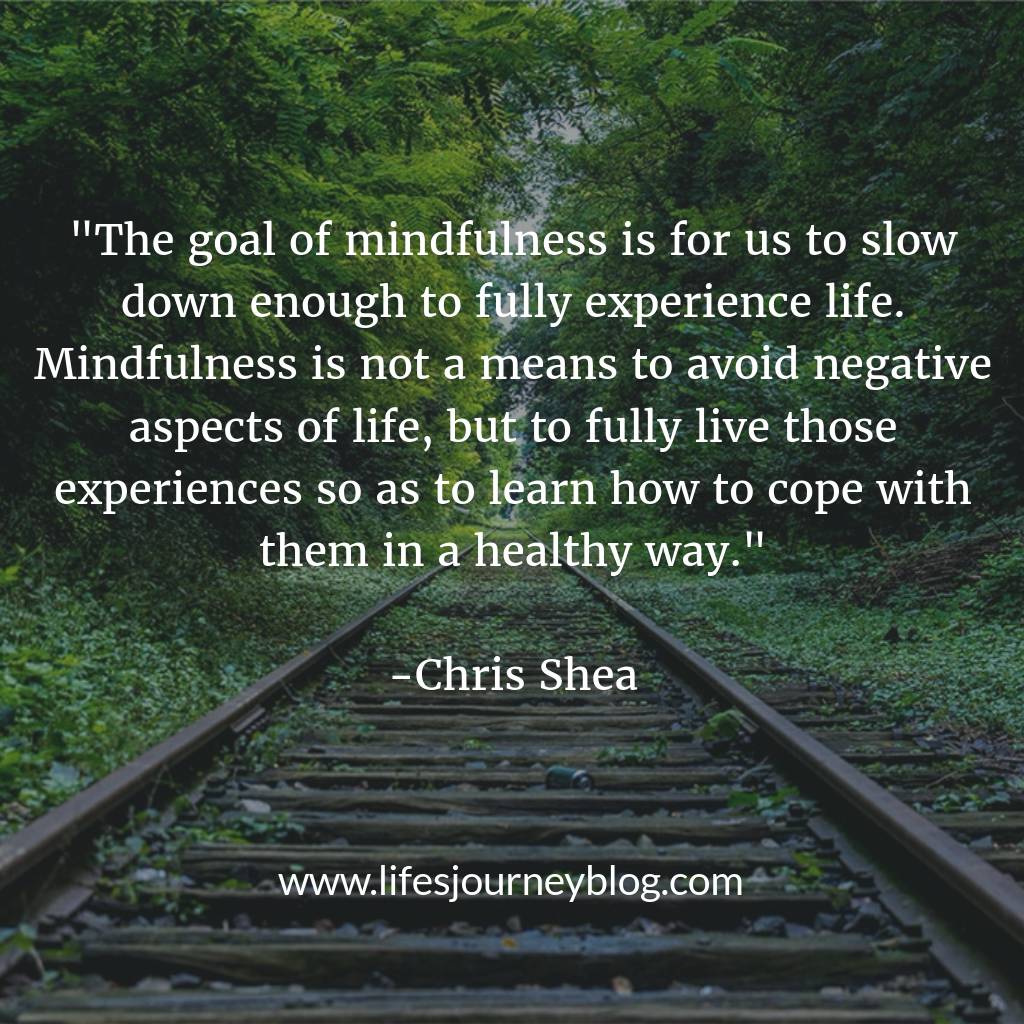Posts Tagged ‘how to find your inner peace’
5 Reasons Why Inner Peace Is Important
So many of us are seeking inner peace that the question of why inner peace is important comes to the forefront. Inner peace is a concept which I speak and write about quite frequently. For me, the pursuit of inner peace is more important and vital then the search for happiness or success. Happiness is nothing more but a fleeting emotion, and success can be taken from us just as easily as it can be gained. But true inner peace is permanent.
Inner peace is not just for those who dedicate their lives to prayer or spirituality. Inner peace is attainable regardless of our lifestyle or occupation. As I have previously written, inner peace can be found as we learn to mindfully view ourselves and the world around us.
I define inner peace as a state of emotional and mental peace without disturbing thoughts, and recognizing our control over our moods and reactions. It is essential for inner peace that we believe it’s possible and that we believe we are in control of our thoughts, emotions, and behaviors. Once we truly believe and acknowledge this, the foundation for inner peace has been built.
When one attains inner peace you find that you are able to cope, in a healthy way, with any event or situation happening around you. inner peace does not take away or eliminate our anxieties or fears, rather inner peace allows us to cope with those anxieties and fears, through which we learn and move beyond those anxieties. Neither anxieties or fears are possible to be eliminated, but anxieties and fears can be utilized as a means for further growth.
In my private practice and in speaking with people in general, I find that most people do not believe that inner peace is possible. I can understand why this feeling exists since many of us don’t have inner peace. But just because we don’t have it does not mean that it’s not attainable. Please refer to some of my previous writings to learn how to attain inner peace as this article is not focused on the how but on the why. It’s my hope that if we understand why inner peace is important we may be encouraged to strive to attain inner peace.
Here are but a few of the reasons that I feel inner peace is important. I’ve reflected on these in my own experience along with the experiences of my clients. This in no way is an exhaustive list but rather a start for you to add on to.
- It improves our ability to focus our mind. In today’s world there are many distractions which cause us anxiety and worry. The anxiety and worry which we feel is not productive and causes us to lose focus on ourselves and our families. Inner peace teaches us the proper coping methods so that we can turn our anxiety and worry into action steps while maintaining the focus of our mind on what is truly important in our lives.
- It helps us to show patience and tolerance. If you have any dealings with social media you are fully aware of the lack of tolerance and patience people seem to have these days. Inner peace allows us to be patient and tolerant of the views of others without the need for anger reactions or responses. Inner peace teaches us that through patience we can better understand the situation and therefore better understand solutions to the problems.
- It provides us the ability to sleep better. Many of us do not get the proper amount of sleep either because we are overworked or our minds are overworked. Since inner peace helps us to cope with our stresses and anxieties it allows our minds to not only focus but to slow down thus enabling us to gain a good night sleep.
- It enables us to enjoy happiness. Happiness is but a fleeting emotion although an emotion which does not happen easily these days. Having an inner peace and therefore less stress and anxiety allows us to more deeply feel our happy moments. As we practice mindful living and a sense of inner peace those moments of happiness feel greater and seem to last longer.
- It improves our relationships with others. How we feel about ourselves is how we perceive the world around us. That perception of the world guides our responses and actions. If I am feeling an inner peace my view of myself will be improved, therefore the world around me will seem better and brighter which will lead to more positive reactions and actions on my part. The more positive that I can be in my relationships the more positivity I will receive from the other.
I know from experience that finding and living with inner peace is possible. I’m not speaking academically or theoretically, but personally. Once you can believe that inner peace is attainable for you then you too can work toward gaining inner peace. The reasons why inner peace is important are many! It’s my hope that as you work on your own inner peace you will add to my list.
{loadmodule mod_custom,continue the conversation here or on social media}
How To Find Your Inner Peace
As a counselor and a life coach, it is unfortunate that I wasn’t provided any formal education to prepare me to use mindfulness. But, after becoming personally aware of mindfulness and how it led me to find my inner peace, I made it my mission to teach people how to find your inner peace.
Historically, the arrival of mindfulness to the US is attributed to Jon Kabat-Zinn. Kabat-Zinn is Professor of Medicine Emeritus and creator of the Stress Reduction Clinic and the Center for Mindfulness in Medicine, Health Care, and Society at the University of Massachusetts Medical School. Kabat-Zinn was first introduced to the philosophy of Buddhism while he was a student at MIT. Later, in 1979, he founded the Stress Reduction Clinic at the University of Massachusetts Medical School, where he adapted Buddhist teachings on mindfulness and developed the Stress Reduction and Relaxation Program. He later renamed the program “Mindfulness-Based Stress Reduction” (MBSR), removing the Buddhist framework and eventually downplayed any connection between mindfulness and Buddhism, instead putting MBSR in a scientific context. To this day Kabat-Zinn downplays the connection of mindfulness to Buddhism, yet I feel his downplaying of Buddhism is a means of bringing mindfulness into the mainstream; which is occurring.
In 2013 Kabat-Zinn describes mindfulness as “a means of paying attention in a particular way; on purpose, in the present moment, and nonjudgmentally.”
How does the study of mindfulness translate into a daily practice to find your inner peace? A bit over 5 years ago I made a significant job change which “forced” me, as a type A person, to slow down. At the time I wasn’t yet consciously aware that I was beginning to live mindfully. As I slowed myself internally and externally, I focused my thoughts and attention to the present moment. No longer was I dwelling on my past nor anxious about my future. This was quite the change for me as I used to be the king of anxiety and worry!
It was during this time I’m my life when I discovered Jon Kabat-Zinn’s definition of mindfulness I mentioned above: “a means of paying attention in a particular way; on purpose, in the present moment, and nonjudgmentally.” Personally, the two key phrases in this definition are important to me are “on purpose” and “nonjudgmentally”. To find your inner-peace we need to consciously make the choice to spend time every day focusing our attention on what is happening around and within us. Our focus is not meant to judge what is happening, just to notice it, to experience it. As we become aware of our surroundings and inner self, we become aware of life’s joys, sorrows, difficulties, potential, and hope. In this state of focused awareness we are enabled to discover solutions.
The goal of mindfulness is for us to slow down enough to fully experience life. Mindfulness is not a means to avoid negative aspects of life, but to fully live those experiences so as to learn how to cope with them in a healthy way. Many of us try to avoid negativity at all costs, only to discover that we may be successful at avoidance for a time, but eventually we are hit once again with that which we were trying to avoid. Mindfulness asks us to be aware of all of our emotions, to feel everything, even the negativity. In so doing, we end up coping with all that life gives us, the positives and the negatives. Realizing that we can cope with life, without needing to avoid life, teaches us necessary skills for dealing with future events we will encounter.
Living mindfully is a daily practice of noticing the little things. For example, one eats mindfully by doing so intentionally, savoring each bite rather than rushing through a meal without truly tasting or appreciating the event. During your commute, or rushing from one task to another, we can mindfully (intentionally) notice the details of the flora, buildings, people, cracks in the sidewalk, etc. instead of missing those aspects of our lives.
How can mindfulness lead you to finding your inner peace? The short answer: mindfulness guides us to live in the moment, for it is only in the moment where we have “control” in our lives. By control, I mean our ability to change our thoughts and perceptions. If I allow my thoughts to remain in either the past or the future, I suffer from stress and anxiety since I have no control over those time periods. All that I can do with the past is learn it’s lessons; in the future, all I can do is prepare, yet, in the present moment I am capable of making changes to my thoughts and feelings as I feel them. Therefore, keeping my thoughts focused on the present moment allows me to feel and experience life to its fullest, while choosing the thoughts I wish to think.
Mindfulness has not only been effective for centuries, it is now proven through scientific research as a means of guiding us to finding your inner peace. I’m not just a counselor teaching mindfulness; I’m also a practitioner of mindfulness who, in the moment, has found my inner peace.
{loadmodule mod_custom,continue the conversation here or on social media}


